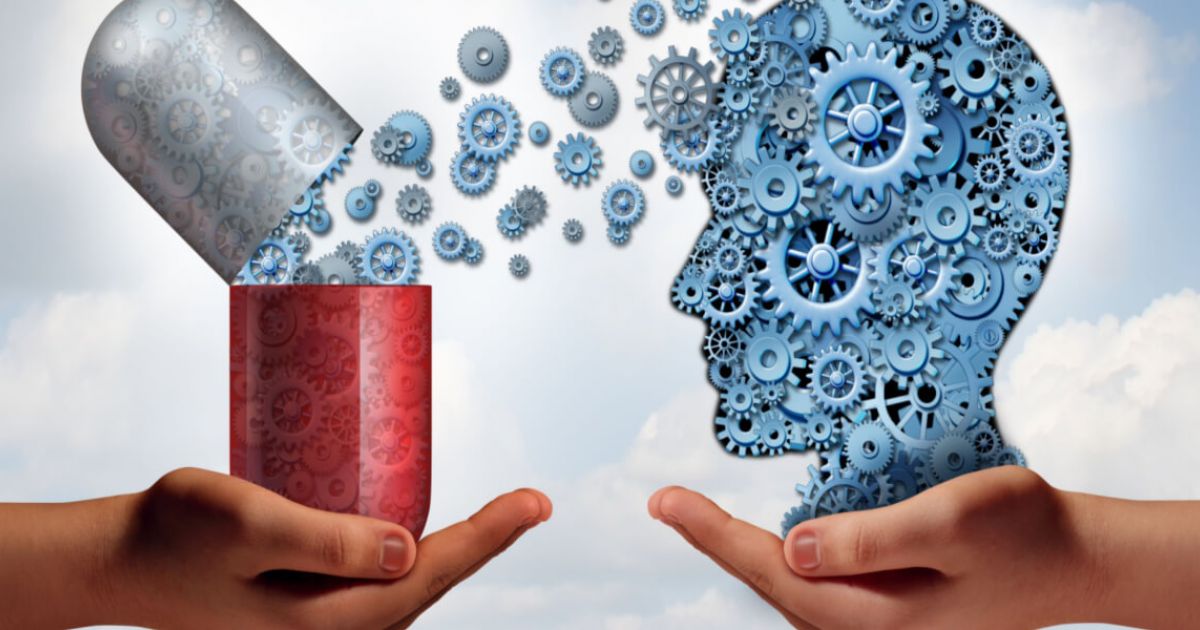In the realm of mental health, the intertwined relationship between addiction and other mental illnesses has been a subject of extensive study and debate. It’s not uncommon for individuals struggling with addiction to also grapple with concurrent mental health issues. This complex interplay between addiction and mental illness poses a significant challenge to both individuals and healthcare providers. Addressing addiction without acknowledging the underlying mental health issues can be like treating the symptoms while ignoring the root cause. In this article, we will delve into the intricate connection between addiction and mental illness, emphasizing the importance of addressing both simultaneously to provide comprehensive care and facilitate lasting recovery.
Co-occurring addiction and mental illness is a common and complex problem that affects millions of people worldwide. It is defined as the presence of both a substance use disorder and a mental health disorder in the same person. Co-occurring disorders can be difficult to treat, but there are a number of effective approaches available. One of the most important things to understand about co-occurring disorders is that they are not simply two separate problems. Rather, they are interconnected and can exacerbate each other.
For example, someone who is struggling with addiction may use drugs or alcohol to cope with their mental illness. This can lead to a worsening of their mental health symptoms, which in turn can make it more difficult to maintain sobriety. There are a number of different ways to address co-occurring disorders. One approach is to focus on treating the underlying mental illness. This can involve therapy, medication, or a combination of both.
Once the mental illness is under control, it is often easier to address the addiction. Another approach is to use a combination of therapies and medications to treat both the addiction and the mental illness simultaneously. This is known as integrated treatment. Integrated treatment programs are typically more effective than traditional treatment programs for co-occurring disorders.
Table of Contents
Understanding the Connection
Addiction, whether it be to substances like drugs and alcohol or behaviors like gambling or gaming, often goes hand-in-hand with other mental illnesses. According to the Substance Abuse and Mental Health Services Administration (SAMHSA), approximately 9.2 million adults in the United States experienced both a substance use disorder and a mental illness in 2019. This dual diagnosis, often referred to as co-occurring disorders or comorbidity, is not merely a coincidence but rather a complex interaction between the two conditions.
The Vicious Cycle
The relationship between addiction and mental illness is often described as a vicious cycle. Mental health issues can lead to substance abuse as individuals attempt to self-medicate to alleviate their symptoms. For example, someone struggling with depression may turn to alcohol or drugs as a way to temporarily escape their emotional pain. Conversely, addiction can exacerbate existing mental health problems and even trigger new ones. Substance abuse can disrupt brain chemistry and lead to symptoms that mimic mental disorders, such as anxiety and paranoia.
Common Co-Occurring Disorders
- Depression and Anxiety: These are among the most common mental health conditions that co-occur with addiction. The soothing, euphoric effects of substances often provide temporary relief from the overwhelming symptoms of depression and anxiety, leading to a cycle of dependence.
- Post-Traumatic Stress Disorder (PTSD): Individuals who have experienced trauma may turn to substances to numb their emotional pain. Unfortunately, this can lead to addiction and further complicate their addiction ecovery.
- Bipolar Disorder: People with bipolar disorder may misuse substances to self-regulate their mood swings, which can escalate into addiction over time.
- Schizophrenia: The relationship between schizophrenia and addiction is particularly challenging. Substance abuse can worsen the symptoms of schizophrenia and interfere with medication adherence.
The Stigma Barrier
One significant hurdle in addressing co-occurring addiction and mental illness is the stigma attached to both conditions. Society often judges those struggling with addiction and mental health problems, viewing them as weak or lacking willpower. This stigma can deter individuals from seeking help or admitting their struggles, which further perpetuates the cycle of suffering in silence.
The Importance of Dual Diagnosis Treatment
Effective treatment for co-occurring addiction and mental illness must adopt a holistic approach that acknowledges the interconnectedness of these conditions. Dual diagnosis treatment programs, which simultaneously address addiction and mental health issues, have proven to be the most successful approach.
Comprehensive Assessment: The first step in dual diagnosis treatment is a thorough evaluation by a qualified mental health professional. This assessment helps identify the specific mental health disorders and their relationship to addiction.
Integrated Care: Integrated care involves a collaborative effort between addiction specialists and mental health professionals. This approach ensures that both conditions are treated concurrently, allowing for a more comprehensive and tailored treatment plan.
Pharmacotherapy and Psychotherapy: Medications may be prescribed to manage mental health symptoms, and psychotherapy is utilized to address the underlying emotional and psychological issues that contribute to addiction.
Supportive Environment: Creating a supportive and understanding environment is essential for individuals with co-occurring disorders. Support groups and family involvement can be instrumental in the recovery process.
Relapse Prevention: Recognizing the risk of relapse is crucial in dual diagnosis treatment. Individuals must develop coping strategies to manage triggers and stressors without resorting to substance abuse.
Conclusion
Addiction and mental illness are deeply intertwined, creating a complex and challenging landscape for both individuals and healthcare providers. Ignoring one while treating the other is an incomplete approach that often leads to poor outcomes. To truly break the chains of addiction and mental illness, we must recognize their symbiotic relationship and address both simultaneously. By reducing stigma, promoting integrated care, and providing comprehensive support, we can offer hope to those who are trapped in the cycle of co-occurring disorders. Ultimately, it’s time to acknowledge that addiction and mental illness go hand-in-hand, and both must be addressed to pave the way for lasting recovery and improved mental well-being.

